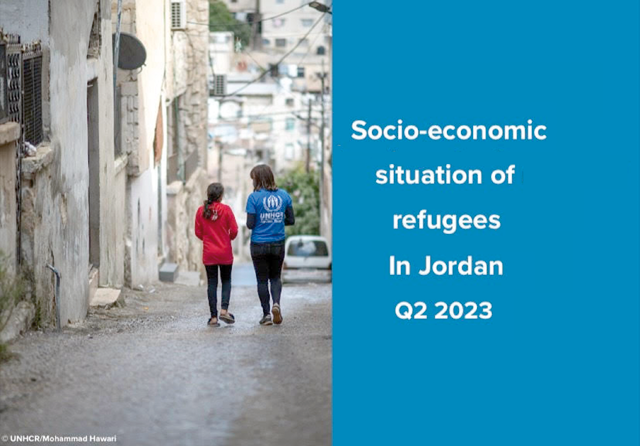AMMAN — The majority of refugees in camps and host communities have resorted to negative coping strategies during the second quarter (Q2) of 2023, according to the UN refugee agency, UNHCR.
Its report on the socio-economic situation of refugees in Jordan during Q2 of 2023 showed that 90 per cent of refugee households in host communities employed at least one livelihood-based coping strategy to make ends meet during that period.
Seventy-nine per cent of Syrian refugees and 74 per cent of non-Syrian refugees adopted stress-related coping strategies at least once in Q2 of 2023. These include spending savings, taking loans for non-food essentials, buying food on credit, or selling household goods or assets, according to the report.
Moreover, it stated that both Azraq and Zaatari camps marked a decrease in crises-level coping strategies and an increase in stress and emergency-level strategies in Q2 of 2023, including taking loans and accepting high-risk jobs in Zaatari.
Food security
The report revealed that the number of refugee households in communities and camps facing difficulties in affording food and adopting negative food-based coping strategies increased in Q2 of 2023, with most refugees relying on less preferred or cheaper foods.
Its findings indicate that 69 per cent of Syrian refugees and 62 per cent of non-Syrian refugees in communities bought food on credit during Q2 of 2023. Moreover, 72 per cent of refugees in Azraq camp and 71 per cent of refugees in Zaatari camp bought food on credit.
According to the report, nine out of 10 refugees in Jordan remain in debt in Q2 of 2023, with most households borrowing money from friends and neighbours or shopkeepers to cover basic needs.
It showed that the average debt per household stood at JD1,261 among refugees in host communities and at approximately JD760 among refugees in camps.
